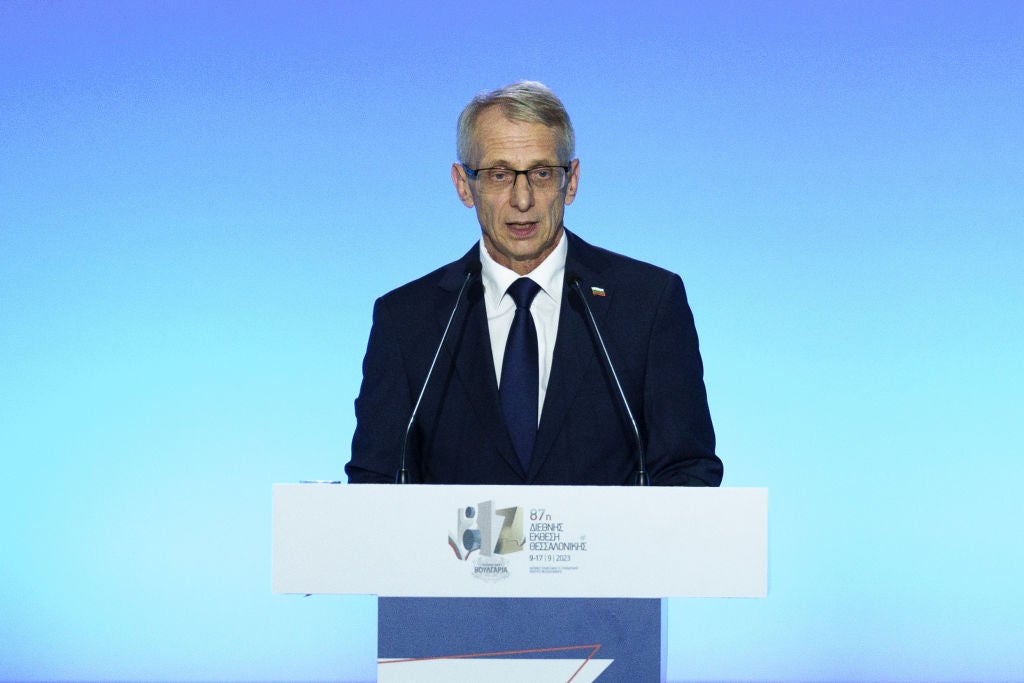
Bulgaria has introduced a punitive tax on Russian-owned gas operations in a bid to drive down Moscow’s energy profits and force European countries to switch to alternative energy sources, government officials have said.
The new bill, passed on Friday and set to come into force immediately, imposes a charge of 20 Bulgarian lev ($10.79) per megawatt-hour of natural gas produced by Russia. This is equivalent to approximately 20% of Europe’s benchmark gas prices. The government has said that it expects the tax to generate an additional $1.2bn in revenue.
The levy will apply to grid operators and final importers, although an exception for compressed fuel transported on specific containers has been included in the bill.
The move comes just days after Bulgaria hit the Russian-owned Lukoil refinery, which sits on its Black Sea coast, with a 60% tax on profits. Officials have said that the goal of both measures is to push Russia out of the European market.
Bulgaria no longer imports Russian gas for its own energy needs. In August last year, Russian energy giant Gazprom suspended gas supply to the country and nearby Poland after both nations refused to pay for the company’s fuel in Russian rubles.
However, a significant portion of Russian gas flows through Bulgaria to reach the rest of Europe. Almost half of Russian pipeline gas enters Bulgaria from Turkey through the Balkan Stream route, which is then shipped to Hungary, Serbia and other areas of southern Europe.
How well do you really know your competitors?
Access the most comprehensive Company Profiles on the market, powered by GlobalData. Save hours of research. Gain competitive edge.

Thank you!
Your download email will arrive shortly
Not ready to buy yet? Download a free sample
We are confident about the unique quality of our Company Profiles. However, we want you to make the most beneficial decision for your business, so we offer a free sample that you can download by submitting the below form
By GlobalData“The calculation is that while we’re not consuming any more Russian gas, we’re still basically culprits [for other countries] in Europe continuing to consume Russian gas,” a person familiar with Bulgaria’s decision told the Financial Times (FT). “The entire goal was to make that slightly less profitable and force Serbia and Hungary to look elsewhere.”
States that receive Russian gas through the TurkStream pipeline have expressed concern over the potential impact of Bulgaria’s new tax on energy supply.
“This is a big problem for us. This will lead to a drastic increase in the price of gas by an additional €100 per 1,000 cubic metres of gas,” Serbian President Alexander Vucic said on Saturday. “This is an appalling increase, and we will talk to the Bulgarian side – and this [decision] should not be valid for Serbia.”
MP Venko Sabreutev, from the Centrist party We Continue the Change, part of the ruling majority in Bulgaria, told public broadcaster BNT that “Bulgaria decides on its own what fees to introduce for the transit of gas through its territory,” adding that “Hungary and Serbia should look for an alternative [energy supply].
“This is a pan-European policy to reduce Russia’s income from the sale of natural gas, petroleum products, etc. We are part of the big European family that does not want the war in Ukraine to continue. We must use economic measures to stop Russia,” he said.
Bulgarian Prime Minister Nikolai Denkov also told BNT that the new tax “creates an opportunity for real competition between liquid natural gas from different sources and the gas that comes from Russia.”
Hungarian Foreign Minister Peter Szijjarto called the move “unacceptable”. “For a European Union member state to threaten another EU member’s gas supply is contrary to European solidarity, rules and is unacceptable,” he told reporters on Friday from Moscow, where he was attending an energy conference.







